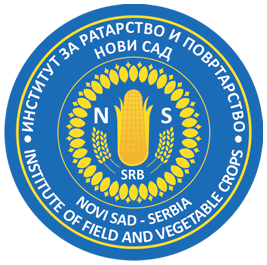Приказ основних података о документу
Climate change and plant-based sources
| dc.creator | Živančev, Dragan | |
| dc.creator | Aćin, Vladimir | |
| dc.creator | Ilin, Sonja | |
| dc.creator | Grahovac, Nada | |
| dc.creator | Brbaklić, Ljiljana | |
| dc.date.accessioned | 2024-05-31T09:48:05Z | |
| dc.date.available | 2024-05-31T09:48:05Z | |
| dc.date.issued | 2024 | |
| dc.identifier.isbn | 978-0-443-16017-2 | |
| dc.identifier.uri | http://fiver.ifvcns.rs/handle/123456789/4658 | |
| dc.description.abstract | This chapter explores the profound impact of climate change on crop yields, emphasizing the importance of accurate climate scenarios for predicting agricultural futures. Rising temperatures due to global warming significantly alter plant phenological stages, shortening crucial periods such as reproduction and grain-filling, leading to reduced yields. Through comprehensive modeling studies, the research highlights both regional increases and decreases in crop productivity. While wheat yields might rise in specific regions such as Western Europe and Canada, significant reductions are anticipated in countries such as India and Pakistan. Similar challenges are faced by rice production, particularly in regions such as Central Asia and Europe, with potential global yield decreases of up to 13.1%. These findings underscore the urgent need for adaptation strategies, including crop changes and altered sowing seasons, emphasizing the critical role of precise predictions in mitigating climate change’s impact on global agriculture. Elevated CO2 levels lead to starch accumulation, diluting proteins and minerals in crops such as wheat and rice, while elevated temperatures and drought conditions affect grain constituents and oilseed quality. Additionally, climate change influences antinutrient levels and fosters mycotoxin-producing fungi, posing health risks. As climate change intensifies, innovative plant breeding approaches are crucial to develop resilient crops. Integration of high-throughput phenotyping, molecular markers, machine learning, CRISPR/Cas genome editing, and speed breeding creates a powerful toolkit. These multidisciplinary methods not only accelerate breeding but also ensure precision agriculture, enabling swift adaptation to climate challenges and securing the global food supply. Traditional breeding coupled with advanced genomic tools provides a foundation for creating climate-resilient “smart crops,” bridging the gap between production demands and unpredictable climate changes. | sr |
| dc.language.iso | en | sr |
| dc.publisher | Elsevier | sr |
| dc.rights | closedAccess | sr |
| dc.source | Handbook of Plant-Based Food and Drinks Design | sr |
| dc.subject | climate change | sr |
| dc.subject | cultivated crops | sr |
| dc.subject | pests | sr |
| dc.subject | breeding | sr |
| dc.subject | plant-based sources | sr |
| dc.subject | yield | sr |
| dc.title | Climate change and plant-based sources | sr |
| dc.type | bookPart | sr |
| dc.rights.license | ARR | sr |
| dc.citation.epage | 425 | |
| dc.citation.spage | 409 | |
| dc.identifier.doi | 10.1016/B978-0-443-16017-2.00030-9 | |
| dc.type.version | publishedVersion | sr |
Документи
| Датотеке | Величина | Формат | Преглед |
|---|---|---|---|
|
Уз овај запис нема датотека. |
|||

